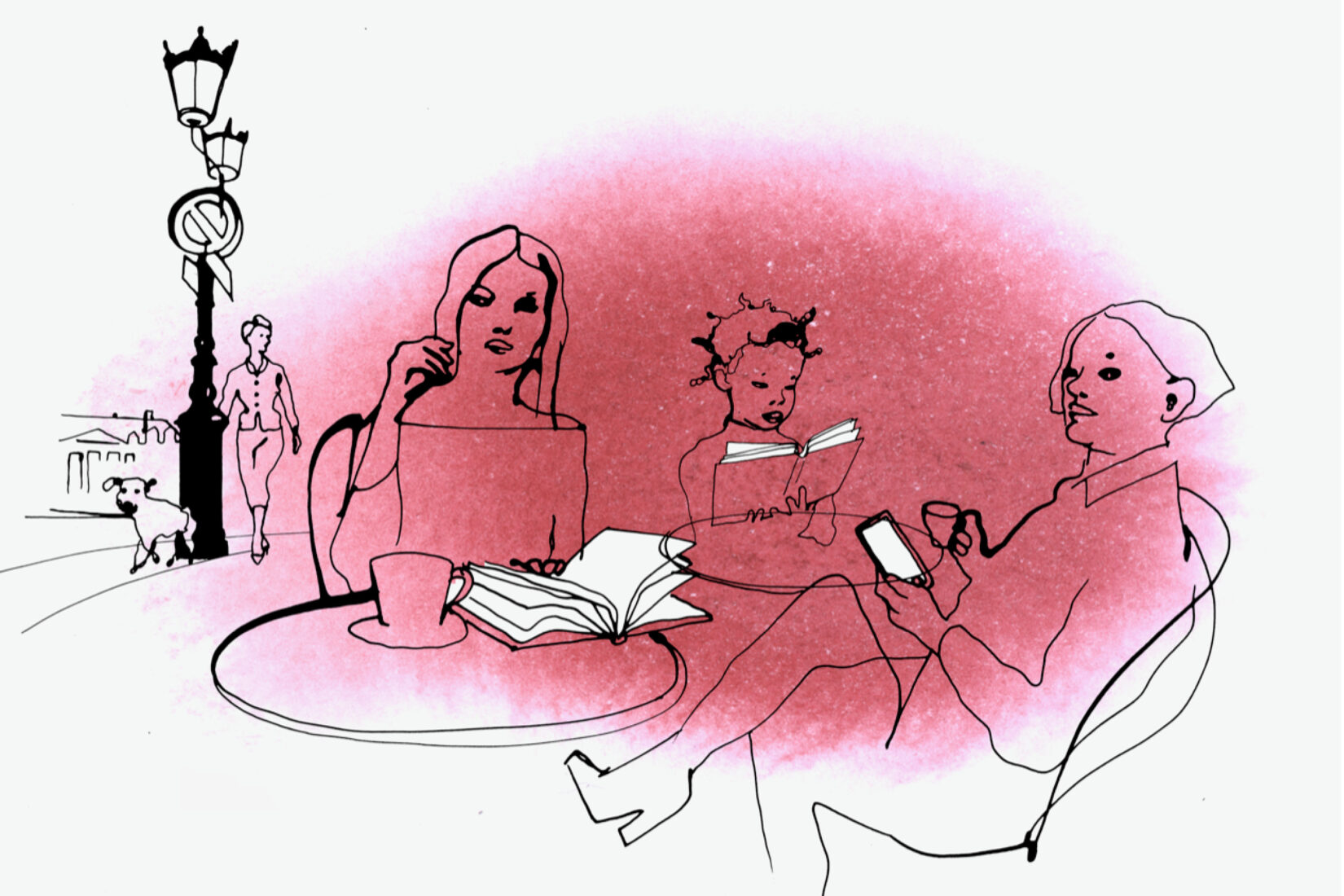“The French read standing up and walking along, in the Metro and on the bus, while queuing, on park benches and sitting at pavement cafés. In Sweden too, people read in public areas, but more often on their phones—indeed who can tell if they’re reading a book, playing a game or looking at their photos while listening to an audiobook? These different practices influence the day-to-day public landscape insofar as the phone is just an anonymous digital tool whereas the book states its title, its author and even its genre. When we see people reading books around us, literature is taking place.” (K. Lundblad)
The way books are anchored in French society can also be explained by public policy: the French fixed book price law has helped small local bookshops to stay in business and continue to maintain social and cultural bonds.
What does the presence of physical books mean in public space? How does it influence society and culture? How does the way we approach literature affect our conscious experience, our curiosity and our ability to marvel at stories?
Kristina Lundblad, who lectures on the history of books at Lund University, and Sophie Noël, lecturer in sociology at Paris-Panthéon-Assas University, will be discussing these questions over drinks at café Fika.
Useful information
- At café FIKA, in our courtyard.
- Admission free, no need to book in advance.
